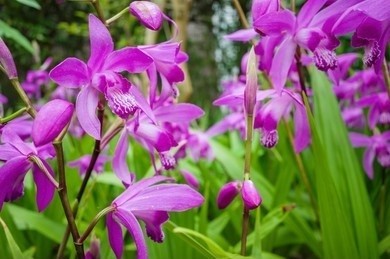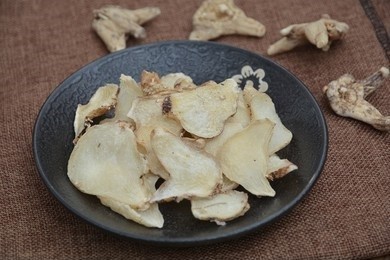Bletilla Plant Tissue Culture
The genus Bletilla is one of the most economically valuable groups of temperate terrestrial orchids and is a perennial herb. There are six species of Bletilla in the world, and they are found in northern Myanmar, China, and Japan in Asia.
The genus Bletilla is not only of high ornamental value, but also a common herbal medicine, and the dried tubers of Bletilla are used medicinally to stop bleeding, clear away heat, and reduce swelling and produce muscle. Because of its high economic and medicinal value, the wild resources have been artificially harvested without restriction, and at the same time, its ecological environment has been destroyed, making the wild resources even more precarious.
Tissue culture service
Although all plants in the genus Bletilla can be used as medicine, Bletilla striata have the best medicinal properties, so Lifeasible has established a tissue culture system mainly for Bletilla striata.
- Bletilla striata (Thunb.) Rchbf
- Bletilla sinensis (Rolfe) Schtr
- Bletilla formosana (Hayata) Schlr
- Bletilla ochracea Schltr
The natural germination rate of Bletilla striata seeds is extremely low, and the propagation of Bletilla striata plants by division also has the obvious problem of long propagation period and low propagation efficiency. Lifeasible has established a system for asexual propagation of Bletilla striata by aseptically sowing seeds on different media and propagating them by tissue culture (we also select stem tips, pseudobulbs, and shoots as explants) to achieve effective and rapid expansion and large-scale production of seedlings of Bletilla striata.
In the process of tissue culture, the culture material releases brown material into the medium, causing the medium to turn brown, which eventually leads to the death of tissue culture seedlings. Lifeasible has improved the medium based on extensive practical experience and obtained a Bletilla striata multiplication medium that prevents browning. By adding a certain percentage of other anti-browning substances such as growth hormone, cytokinin, and ascorbic acid to the medium, we obtained a better seed multiplication effect and effectively prevented the browning phenomenon during the culture process.
You want to sign a confidentiality agreement.
You have a specific plant species for your experimental needs.
You have a reliable and relevant cooperation project to discuss.
You are very interested in our project or have any questions.
You need an updated and detailed quotation.
For research or industrial use.




